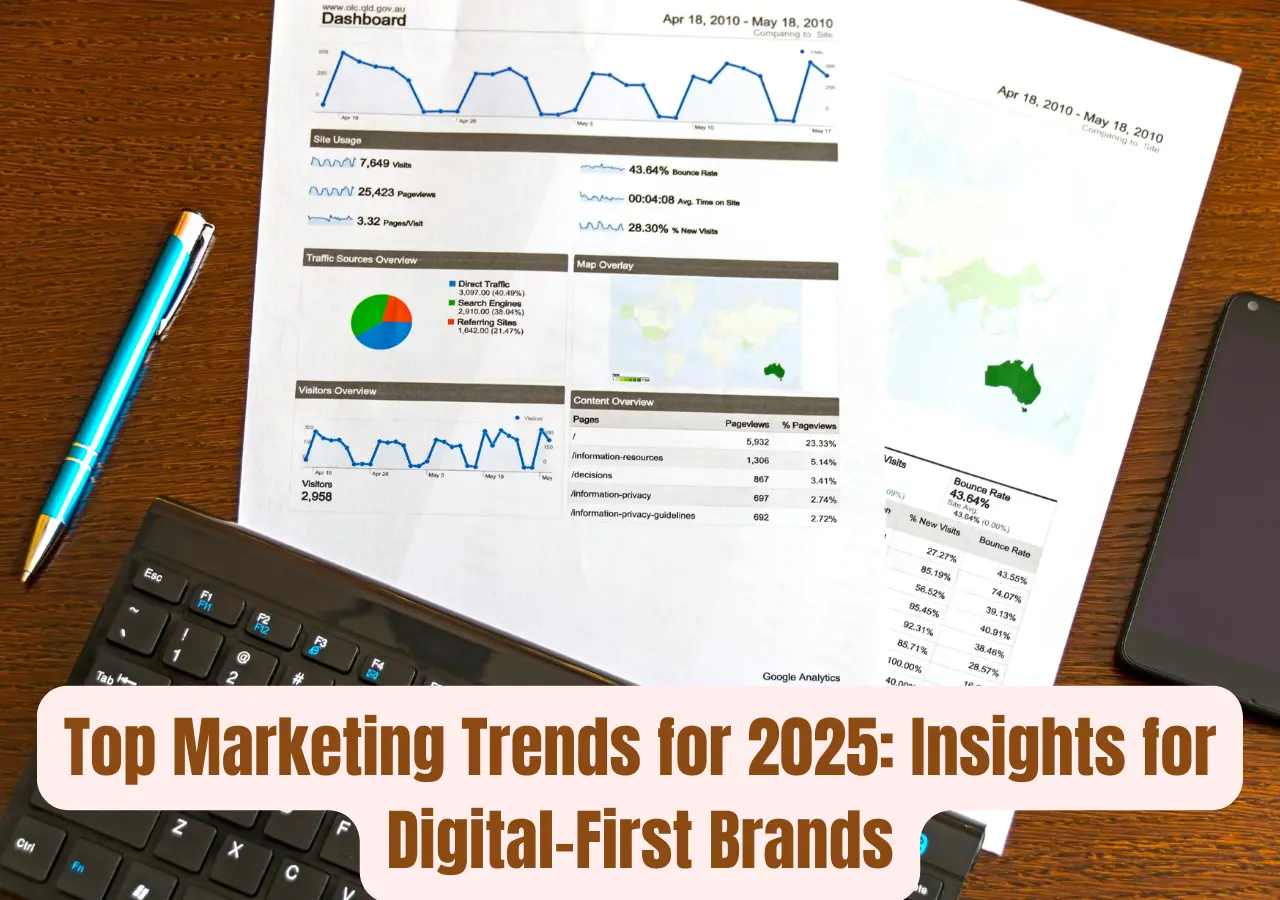As technology evolves, so do consumer expectations. In 2025, digital-first brands will face new opportunities and challenges in staying connected with their audiences. From shifting data strategies to advanced tools, businesses must adapt quickly to deliver seamless, relevant experiences. But with so many channels and touchpoints to manage, the process can feel overwhelming.
This article looks into the key marketing trends shaping 2025. It covers how brands can better use technology, prioritize sustainability, and refine their strategies to keep pace with an ever-changing digital landscape. Let’s explore what’s ahead and how businesses can stay competitive in the coming year.
Personalized, Data-Driven Experiences Take Center Stage
The demand for hyper-personalized experiences is reaching new heights. Customers now expect brands to deliver relevant, tailored messaging across all their interactions, whether they’re shopping online, engaging through social media, or interacting with a chatbot. However, delivering such experiences requires more than just good intentions. It requires a strong foundation of interconnected data and technology.
One solution that’s gaining traction is a digital experience platform (DXP). Unlike standalone tools, a DXP integrates multiple technologies—like customer relationship management (CRM), content management systems (CMS), and data analytics—into a single hub. By doing so, it helps businesses manage their digital ecosystems more effectively, delivering consistent and personalized experiences across channels. For example, instead of sending the same email to your entire customer base, you can use data insights to deliver targeted content based on past purchases or browsing behavior.
The takeaway? Start investing in systems that help bridge the gap between your data and content. Doing so allows your team to craft experiences that feel seamless and personal, no matter where your audience interacts with your brand.
Workflow vs. Process Automation: Understanding the Key Differences
AI-Powered Content Creation and Campaign Management
Artificial intelligence (AI) is revolutionizing how marketing teams operate. By automating repetitive tasks, AI tools free up time for creativity and strategy. In 2025, AI will play an even bigger role in content creation and campaign management.
For example, AI tools can generate blog outlines, social media captions, and even entire ad campaigns. These tools analyze what resonates with your audience and use that insight to recommend content ideas. In campaign management, AI-powered systems can analyze performance in real time and suggest adjustments for better results.
While the possibilities are exciting, it’s important to use AI thoughtfully. The human touch remains critical in crafting authentic messaging that connects emotionally with audiences. Let AI handle the groundwork, but keep the storytelling and brand voice firmly in human hands.
The Rise of Zero-Party Data Strategies
With stricter privacy regulations and growing concerns about data usage, relying on third-party data is becoming riskier. Enter zero-party data—information that customers willingly share with brands in exchange for value, such as personalized offers or curated recommendations.
In 2025, successful brands will prioritize building strategies to collect and use zero-party data effectively. Quizzes, polls, and preference centers are great tools for gathering this type of information. For instance, a clothing retailer might ask shoppers about their style preferences during signup and use that information to recommend products that match their tastes.
By focusing on data that customers share directly, brands not only meet privacy expectations but also build trust and loyalty. It’s a win-win: your audience feels understood, and you gain actionable insights to drive smarter campaigns.
Voice Search and Conversational AI Reshape Interaction
As more households adopt voice-activated devices like smart speakers, the way people search and interact online is evolving. Voice search is becoming a common way for consumers to find products, ask questions, and even shop. For marketers, this shift means optimizing content for voice queries to capture new opportunities.
Conversational AI, including chatbots, is also becoming more sophisticated. These tools allow brands to offer personalized interactions at scale. For example, a chatbot on an e-commerce website can help a customer find a product, answer questions, and guide them to checkout—all in real time.
To prepare for this trend, focus on making your content conversational and easy to understand. Think about how people speak rather than type, and adapt your strategy accordingly.
Top AI Tools for Lead Generation in Miami: Boost Your Sales Efforts
Sustainability Becomes a Core Marketing Message
Sustainability is no longer a niche concern. Today’s consumers want to support brands that align with their values, and eco-friendly practices are at the top of the list. From reducing waste in packaging to sourcing materials responsibly, businesses are finding ways to incorporate sustainability into their operations.
For marketers, it’s not just about adopting green practices—it’s about communicating them authentically. Transparency matters, so share what you’re doing to make a difference but avoid overpromising or greenwashing. Consumers value honesty and are more likely to support brands that are upfront about their efforts and challenges.
Look at your brand’s impact and identify areas where you can genuinely improve. Whether it’s offsetting carbon emissions or creating products with a longer lifecycle, these actions will resonate with a socially conscious audience.
In 2025, staying competitive will require marketers to adopt new technologies, refine their strategies, and focus on building meaningful connections. By embracing personalization, AI, and sustainability while adapting to changing consumer behaviors, digital-first brands can position themselves for success in an ever-evolving landscape.

